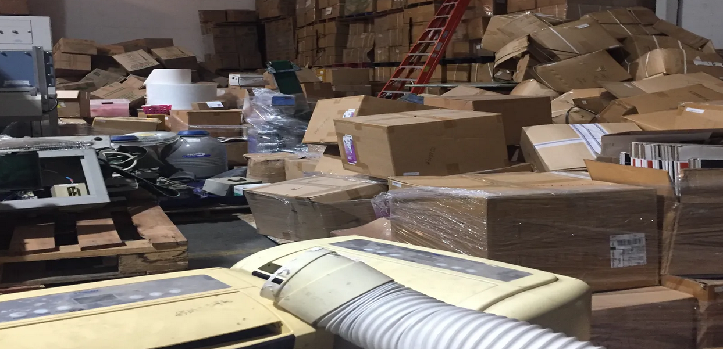When Jesalyn Harper embarked on what seemed like a routine task, responding to an anonymous tip about an unpermitted business in an aged warehouse, she had no idea she was about to stumble upon a clandestine operation that would send shockwaves through the city of Reedley. What began as a straightforward code enforcement inspection took an unexpected twist, revealing a hidden world of scientific intrigue and regulatory ambiguity.
Upon arriving at the decades-old cold-storage warehouse on a chilly December day, Harper could hardly anticipate the bizarre scene that awaited her. A makeshift garden hose protruding through a rear wall, coupled with a ventilation fan expelling an unsettling odor, hinted at something far more perplexing than an unlicensed enterprise. Knocking on the front door to conduct her inspection, Harper soon found herself immersed in a scenario that could have been lifted from the pages of a sci-fi novel.
Inside the warehouse lay a surreal tableau: rows upon rows of refrigerators, each housing vials containing a spectrum of blood samples, viruses, and bacteria. Assorted chemical containers lined the shelves, alongside hundreds of laboratory mice and an eclectic assortment of scientific apparatus. What was most shocking, however, was the revelation that this unpermitted establishment was engaged in a vast array of diagnostic testing, including COVID-19, pregnancy, and drug screenings. These activities were being conducted by Prestige Biotech Inc., a company with its roots in China, which had been forced out of its Fresno location by its landlord in late 2022.
The refrigerators held a mosaic of biological agents, encompassing the coronavirus itself and an assortment of other exotic contagions such as malaria, Hepatitis B and C, chlamydia, human herpes, and rubella. These substances formed the backbone of various test kits produced by the enigmatic enterprise. As the investigation unfolded, a myriad of questions emerged, and it became evident that the situation was unlike anything investigators in the U.S. had encountered before.
? Illegal medical lab full of bioengineered mice, infectious agents discovered in California https://t.co/CaqLDVSwjH
— Insider Paper (@TheInsiderPaper) August 1, 2023
Months after the initial discovery and subsequent shutdown of the clandestine laboratory, a web of complex inquiries continues to unravel. Local, state, and federal agencies are diligently piecing together the puzzle, as the true extent of Prestige Biotech Inc.’s activities slowly comes to light. What sets this case apart is the murky regulatory landscape that surrounds private laboratories, which seem to operate in a significantly less scrutinized environment compared to publicly funded counterparts.
Jesalyn Harper, who has remained at the forefront of the investigation since its inception on December 19th, shed light on the unique challenges posed by such facilities. “We’re finding out that with these private labs, there really isn’t as much regulation as there is for publicly funded labs, labs that receive grants,” she explained. “There’s no one technically looking for them.”
As the legal proceedings unfold, it becomes increasingly evident that this unprecedented case could have far-reaching implications for how private laboratories are monitored and governed in the future. The enigma surrounding Prestige Biotech Inc. serves as a stark reminder that beneath the veneer of routine code enforcement lie hidden worlds that defy easy categorization and challenge conventional oversight mechanisms.
In a realm where scientific discovery intersects with regulatory uncertainty, Reedley’s unassuming warehouse has become a focal point of intrigue and exploration. The ongoing investigation not only seeks to unearth the truth behind the labyrinthine operations but also to shed light on a broader issue – one that transcends borders and disciplines, encapsulating the delicate balance between scientific progress and responsible oversight.

